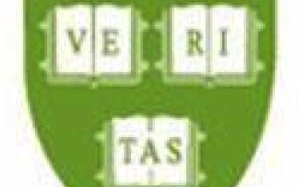Natalie L. Jacewicz ’13 is captivated by lizards. She went all the way to the Dominican Republic to observe them in their natural habitat.
“My favorite part of researching is just watching the lizards,” she said. “It’s fascinating to become a part of the lizards’ world.”
In her study of Anolis lizards at the Losos Laboratory, Jacewicz seeks to answer both behavioral and physiological questions.
The Organismic and Evolutionary Biology concentrator began analyzing the morphology and conduct of juvenile lizards in the fall of her sophomore year. Anolis, the largest genus of lizards, includes several species of lizards that have developed in similar ways across the Greater and Lesser Antilles.
“If we see lizards evolving in the same way, it suggests strict rules for evolution,” Jacewicz said.
Over the summer, Jacewicz explored these evolutionary pressures in the Dominican Republic, where she studied juvenile lizards during lizard breeding season in late June and early July. Juvenile lizards, smaller and more elusive than their adult counterparts, serve as a model organism for evolutionary biology. After closely observing these creatures in groups of up to 120 lizards, Jacewicz compared the behavior and proportions of limb length, head width, and other body parts in adults and juveniles. Jacewicz is currently synthesizing her findings about the evolutionary development of juvenile lizards and aims to publish her work this year.
Though Jacewicz typically spends a few hours per week in her lab during the school year, she often worked 10 to 14 hours per day over the summer.
“The field work we did was very group-oriented,” said Thomas Sanger, a postdoctoral fellow at Losos Lab who has worked with Jacewicz since she began her scientific research. “She kept up with the grueling pace of work.”
Jacewicz’s scientific pursuits have motivated her to consider further research in the Caribbean over the upcoming summer. She would like to observe lizard behavior in urban areas, reflecting a longtime interest in an environment’s influence on an organism and conservation in general. Jacewicz said that her passion for conservation comes from experiences she had during her childhood in a rural part of Tennessee where she witnessed the rapid construction of parking lots and buildings that subsequently went unused.
“Development spiraled out of control,” Jacewicz said.
Accordingly, she serves as a representative for Harvard’s Resource Efficiency Program. In addition, Jacewicz is an active member of the Mock Trial team, which she views as a way to develop her analytical thinking and consider the steps needed to translate scientific research into societal change.
Jacewicz said she is considering going to graduate school or law school and is contemplating the fields of alternative energy and environmental law.
“I know whatever I do, whether with graduate school or with law, I would want to explore conservation,” she said.
Read more in News
At Ig Nobel Ceremony, Quirky Science Takes the StageRecommended Articles
-
Lizards Will ArriveTwo hundred-year-old lizards, named Komodo Dragons will be shipped to the Bronx Zoo. They are descendants of the Australian Dinosaur
-
Natural Selection In The Fast LaneNatural selection can occur in a span of mere months—as some short-legged lizards learned the hard way. Jonathan B. Losos
-
Geckos Inspire Possible Medical AdhesiveResearchers at Harvard and the Massachusetts Institute of Technology have created a new medical adhesive inspired by the sticky footpads
-
Color Dazzles in Animal Kingdom“The Language of Color” is the comprehensive epitome of the maxim “show, don’t tell,” with its digital media, still-life photos,
-
 New REP Blog
New REP Blog













